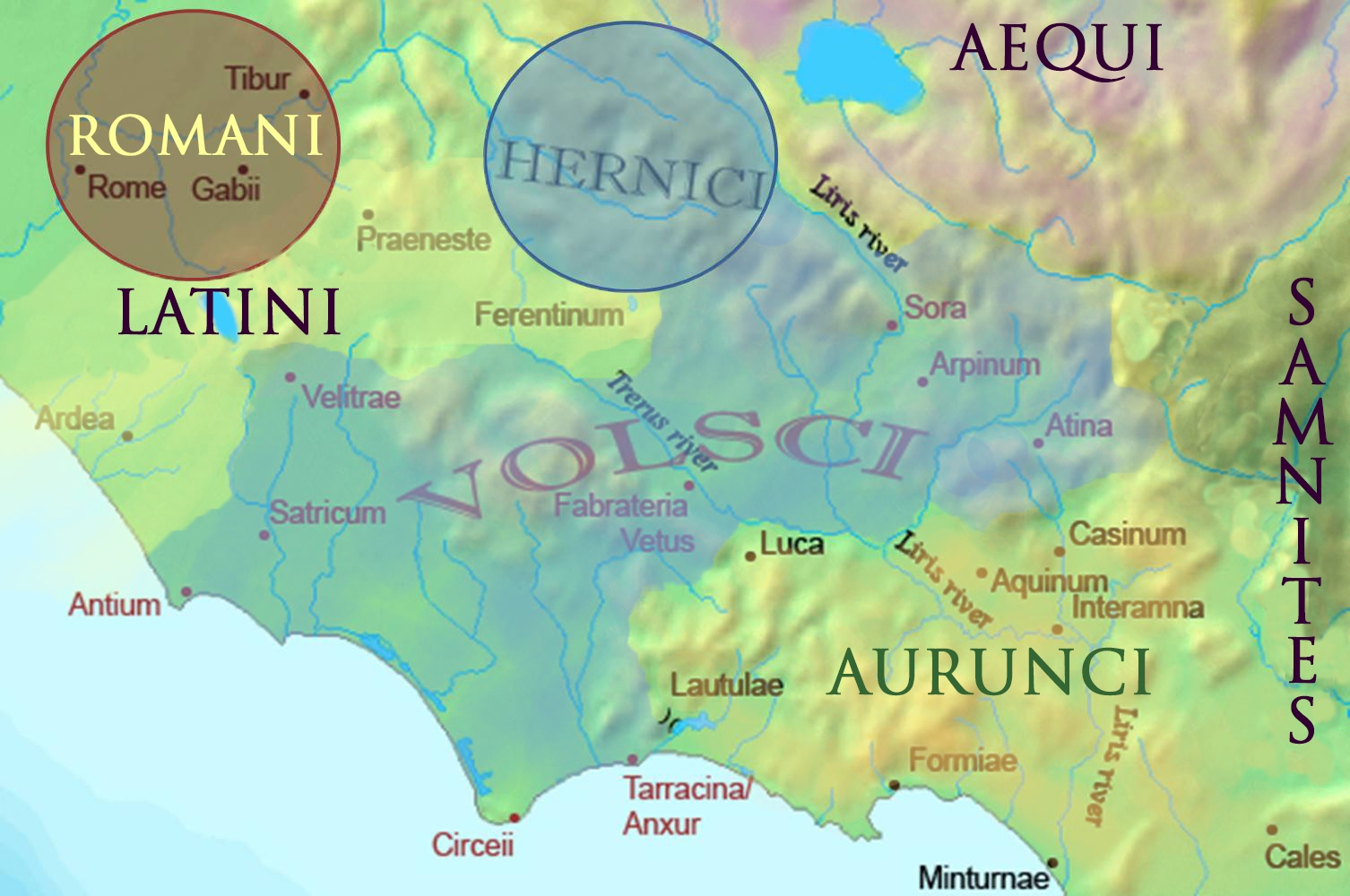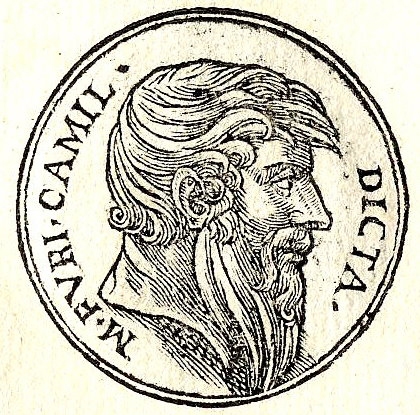388-381 BC
One consequence of the Roman defeat at Alia at the hands of the Gauls was that the Aequi, Etruscans and other tribes took advantage of the Roman preoccupation with their problems (the sack of Rome) to raid Roman territory. However, after the departure of the Gauls, the Romans under the command of the dictator Marcus Furius Camillus defeated the Aequi and Volsci. And they would later in the century, bring the Latin League to heel.
How did a city state that had fought for its very survival for 2 centuries suddenly find the wherewithal to dominate neighbors it could barely fend off in the recent past?
Up until 390 BC, Rome may have been the first among equals but it lacked the resources to dominate others.
Several factors must have coalesced at just the right time to enable the Romans to begin their expansion.
- The Roman state had sufficiently recovered from the economic depression of the late sixth and fifth centuries BC
- The Etruscans, Rome’s powerful neighbor to the north, were preoccupied with the migration of Gallic tribes into their territories
- The Etruscan city state of Veii, had reverted to a monarchy, which complicated relations with the rest of the Etruscan states that had settled on oligarchic rule, thereby weakening Etruscan unity and making Veii vulnerable to Roman predations
- At the beginning of the 4th century, the Roman state “professionalized” its army; paying its soldiers for fighting. This allowed the army to stay in the field year-round without soldiers’ absence from their farms having a catastrophic economic effect at home
- The wealthy city of Veii was taken, after a ten-year siege, thereby doubling the size of Roman territory with a significant increase in state revenues
- The Roman defeat at Alia at the hand of the Gauls led to a reorganization of the army; a division into three heavy infantry lines; the Hastati, Principes and Triari along with cavalry and skirmishing troops instead of a hoplite shield wall
- The rise of the dictator and effective military leader, Marcus Furius Camillus, who led Roman arms from victory to victory
- The Roman method of incorporating defeated enemies into their body politic
- Rome as a matter of policy broke up larger political and social entities into smaller ones
- It had bilateral relations with each individual city state and it fostered relations with the ruling classes in each of those cities
- Most of the conquered cities retained local control of their politics but were obligated to provide fighting men whenever Rome raised a levy


